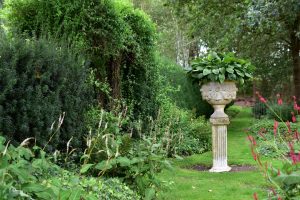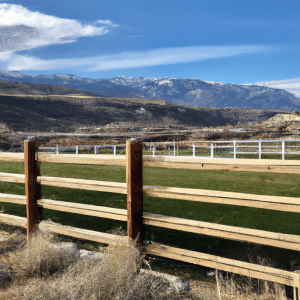Not only is selecting the color and style of the fence an essential aspect of finding the ideal one for your property, but also selecting the material that will best meet your needs in terms of both aesthetics and safety is crucial. The longevity of your fence and its capacity to withstand wear and tear should also be considered.
It is essential to understand how long the different materials will last to assist you in choosing the top-quality fencing appropriate for your needs. The climate of the area in which you live, the style of your home, and the purpose your fence will serve are significant factors in determining the type of material you need for your fence.
How long will your fences last? When attempting to estimate how long a fence will last before it has to be replaced, it is essential to consider these various aspects. This blog will discuss the types of fences, factors to consider when selecting a type for fencing, and some other things that can be done to ensure that the fence will last longer.
Let’s dive into the lifespan of different types of fences
Wood Fences
Some of the most frequent woods used for fencing include cedar, pine, and spruce. The kind of wood you choose for your fence will significantly influence its longevity. Cedar has a lifetime ranging from 15 to 30 years.
Pine typically has a lifetime of 5 to 12 years, while spruce has a lifespan of 4 to 7 years. Choosing treated wood for your fences will make them last even longer. Treated spruce and pine will last up to 20 years, while treated cedar for 40 years!
Moisture in the air is the greatest enemy of a wood fence. Allowing the fence posts to come into touch with the ground may reduce the lifespan of a wooden fence. It is essential to treat or stain the fence posts to prevent moisture from deteriorating the fence’s structure.
Furthermore, wood is a material that takes a lot of maintenance since it must be painted every two to four years.
Vinyl Fences
It is common knowledge that vinyl is a durable material; nevertheless, you may not be aware that the lifetime of a vinyl fence is among the longest available on the market. This fencing material is fantastic for use as a privacy fence, as a barrier around a pool or pet area, as a fence around a front yard, and as a fence to contain pets. In addition, vinyl fences have a long life and need little maintenance.
The typical lifetime of a vinyl fence used as a privacy fence is around 50 years. Naturally, keeping it clean regularly and treating it with care will help it retain its pristine appearance for its whole lifespan.
You may envision vinyl fences as having the classic white picket design, but there are now several different types of vinyl fencing!
Aluminum Fences
Aluminum and chain link are two vital metals that we use for building projects. If you’re looking for a more industrial aesthetic, a fence that lasts longer, chain-link is your safest bet.
Ensure that the metal fence is protected from corrosion by applying a rust-resistant coating every few years.
Aluminum fences have a sleek appearance, low-maintenance elegance, and, of course, unmatched longevity! In addition to its low maintenance requirements, aluminum fences have a long lifetime of 50 years or more.
What is it about the lifetime of an aluminum fence that is so remarkable? Compared to wood, aluminum is resistant to moisture, dust, and mildew growth. This extends the item’s life while also requiring very little of your time and effort.
Moving on, here are some factors that can impact your fences’ lifespan.
Installation
It’s not just about the material itself regarding whether the fencing will last. A garden fence should be placed correctly if you want it to survive for many years. Otherwise, the integrity might be compromised if it isn’t permanently affixed to the ground. Even if the fence is tanalized, it will begin to rot if water accumulates and drainage is overlooked.
To ensure that your fence remains in place, you must install it on sturdy and stable ground. The material alone isn’t enough; it must be handled and installed appropriately by professionals.
Maintenance
Even though a pre-treatment protects fence panels from rot and decay caused by exposure to the weather, the color often loses its vibrancy with time. In a typical situation, this may be addressed by treating the wood with a transparent oil; nevertheless, the purpose of this action is primarily aesthetic.
Several other procedures may be done on an annual basis, and it is in your best interest to consider what the builder of your fence would advise. If you want the life of your fence to be extended for as long as possible, then giving the panels a basic cleaning can be beneficial.
There is no significant work that needs to be done, but just dusting and washing down the panels of your fence a few times a year to remove any natural dirt and residue may help your fence lasts for many more years.
Never use anything harsh since you run the danger of harming the wood, the oil, or even the paint on the surface. You should make use of a pressure washer since this can be helpful on large projects; however, before you begin, make sure that you test the pressure in an area that will not be damaged.
Any damaged sections of your fence must be fixed as soon as possible since accidents can and do happen and cause damage. The sooner you repair any damage, the fewer long-term problems you’ll have to deal with when it comes to maintaining your fence.
Conclusion
If you are searching “fence contractor in Logan,” pick the professional people at Logan Fence Company. With our skills, we can build a sturdy and long-lasting fence for you, one that will continue to look fantastic and cater to your requirements for many years to come with our durable and lasting fences.
Contact us today for further information!




